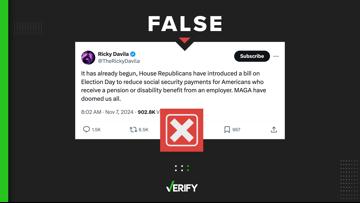UPDATE: The proposed rule has been finalized by the Department of Labor and will take effect on July 1, 2024. The final rule differs slightly from the original proposal; instead of guaranteeing overtime pay to most workers with a salary below $55,068, the final rule raises that threshold to $58,656.
Just before Labor Day, labor groups and progressive activists celebrated a new move from the Biden administration they called a win for workers.
Supporters claimed the Department of Labor is taking steps to expand the right to overtime pay to more than 3 million new people.
THE QUESTION
Would a new federal rule expand who’s eligible for overtime?
THE SOURCES
THE ANSWER
Yes, a new federal rule would expand who’s eligible for overtime. The rule has not yet taken effect.
WHAT WE FOUND
Congress mandated overtime pay for millions of employees when it passed the Fair Labor Standards Act in 1938.
The law created the 40 hour work week, and says that nearly all blue-collar workers – and some white-collar workers – must get paid extra (1.5 times their regular rate) for every hour they work above that. Blue-collar workers typically perform manual labor, while white-collar jobs are often performed in an office setting.
But many white-collar employees who work on salary are not eligible for overtime pay. These positions are known as “exempt.” Positions where overtime pay is federally mandated are called “non-exempt”.
Under the FLSA, salaried workers are eligible for overtime pay only if they meet at least one of two criteria.
One, if their job duties do not fall under the legal definition of “executive, administrative, or professional.”
Two, if their salary falls below a certain threshold.
Over the decades that federal threshold has been raised a few times, most recently by the Trump administration in 2019. And now, the Biden administration is proposing to raise it again.
At the moment the threshold sits at $684 dollars per week, or $35,568 per year. The new regulation would make it $1,059 per week, a salary of roughly $55,068 per year.
That means, with only a few exceptions, if you make less than $55k, you’d be eligible for overtime pay: time-and-a-half for each hour worked above 40 per week.
The proposed regulation would also automatically update that threshold every three years to keep up with the market.
But the rule hasn’t taken effect yet. It’s still in an early stage of the regulatory process, and it could be several months or more before it gets finalized.
Similar proposals have faced court challenges in the past, which could further prolong the process.
Some states can have even higher thresholds than the federal rule, meaning more people in those states are overtime-eligible, but they can’t be lower.












